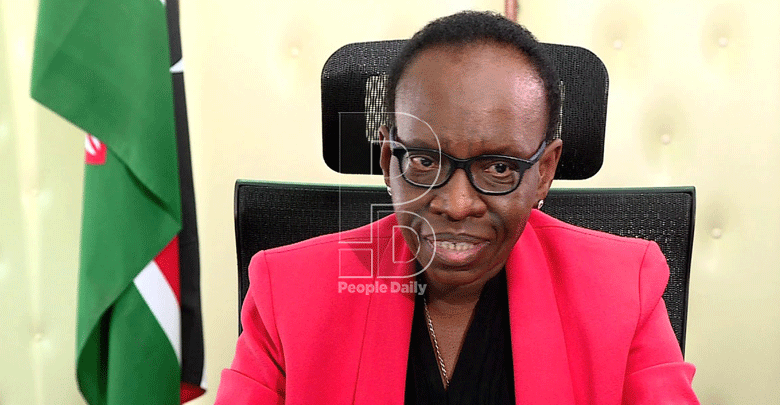Auditor General report shows Jkuat firm is insolvent
By Mercy.Mwai, October 26, 2021Jomo Kenyatta University of Agriculture and Technology Enterprises Limited (Jkuates) is broke, a new report shows.
Report by Auditor General Nancy Gathungu shows the company’s current liabilities of Sh212.7 million exceeds the Sh162.8 million assets resulting in a negative working capital of Sh49.9 million.
“The company is, therefore, technically insolvent and the financial statements have been prepared on a going concern basis on the assumption of continued financial assistance from Jkuat bankers and creditors,” the report.
In the report tabled in the National Assembly, Gathungu also fingered the university firm over its ethnic composition following dominance of one tribe.
She regretted that staff ethnic diversity data revealed that as at June 30, 2020, the entity had 148 staff members out of which 61 were from one ethnic community.
“Although the management has explained that the matter is historical, it has not regularised the anomaly since 2008.
The company is, therefore, in contravention of section 7 of the National Cohesion and Integration Commission Act 2008, which provided that no public establishment shall have more than one third of its staff from one ethnic community. Consequently, the management is in breach of the law,” adds the report.
Gathungu also raised concerns over long outstanding receivables including Sh3.5 million that has been outstanding for more than three years with an outstanding Sh105,775 for more than 10 years, yet the management has not provided evidence to show steps taken towards full recovery.
At the same time, Gathungu has also raised questions over the financial performances of various Technical Training Institutes including Keroka Technical Institute, Technical University of Mombasa and Kabete National Polytechnic.
Irregular expense
With regards to Keroka, Gathungu raised concerns over irregular costs incurred during construction of the library.
She states that the expenditure of Sh3.6 million incurred was incorrectly classified and presented as part of general expenses instead of work in progress under property, plant and equipment.
On land ownership, the Auditor said while the institute states that it has land with a net book value of Sh11.8 million, it does not have a title deed to confirm ownership and location of the said parcel.
Available information, she said, indicates that the institute is located on a 10-acre piece of land that was donated by the community.
Valuation report dated August 2019 indicates that the institute occupies un-surveyed land measuring 4.53 acres.
Auditor General further says minutes of the meeting of the Board of Governors held in June 2017, shows there was a claim for compensation by 10 residents that was rejected by the County Land Management Board and no explanation was given on this.
“Consequently, the ownership of the land as well as the accuracy and completeness of its net book value of Sh11.8 million as at June 30, 2019, could not be ascertained,” she added.
TUC, Gathungu says, is likely to face financial challenges if the current situation is not addressed.
According to her, the company reported a loss of Sh2.2 million reducing the retained earnings from Sh802,495 as at June 30, 2017 to negative Sh1.4 million as at June 2018.
On Kabete National Polytechnic, Gathungu raised concerns over the institution’s ownership of land worth Sh4 billion that was allocated under grant number IR 23463 for a period of 99 years from January 1, 1967 and registered in the Board of Governors of Kabete Technical School measuring 52.6 acres.
She says despite the polytechnic claiming the land, a review of board minutes and institution’s file revealed that there has been a long running dispute including three court cases, which have not been concluded between the polytechnic and St Joseph Anglican Church of Kenya – Kabete that claims ownership of five acres of the land the church stands.
